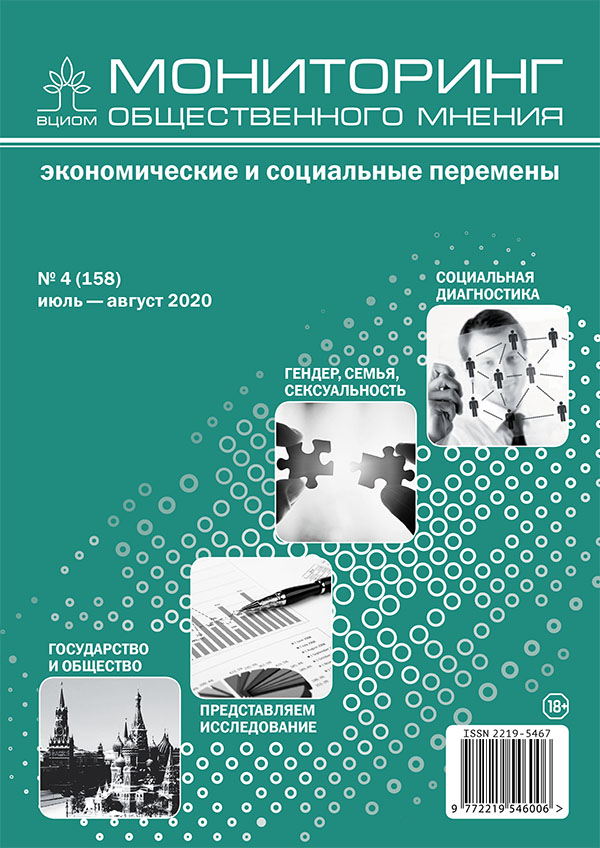Fatherhood and Support for Fathers: Trends in Modern Foreign Studies
DOI:
https://doi.org/10.14515/monitoring.2020.4.948Keywords:
fatherhood, masculinity, responsible fatherhood, involved fatherhood, social support, father support programs, family policy, fathers in vulnerable groupsAbstract
The article analyzes foreign studies devoted to fatherhood, fathers’ social problems and needs, barriers to father’s involvement and putting this model into practice, and focus areas of social support for fathers. The topic is relevant due to the lack of theoretical knowledge of the fatherhood phenomenon, the absence of overviews which would sum up the vast accumulated experience from research in the area of fatherhood support, preventive programs, social strategies taking into account the needs and resources of diverse groups of fathers, an almost complete lack of information on vulnerable groups of fathers experiencing hardships in Russia. The article examines the works that focus on socially vulnerable groups of fathers: minor, lonely fathers, step-fathers, those having children with disabilities, divorced fathers, transnational migrants, immigrants, those with addictive behavior, delinquents, prisoners, those prone to domestic violence, homosexuals, etc. The paper provides characteristics of fathers and their families which have either negative or positive effects on the implementation of the father’s role. The authors conclude that the lack of personal, social, financial, information resources make the implementation of father’s potential more difficult. The study describes cultural, information, economic, structural and institutional barriers which prevent fathers from being involved in child rearing. The fatherhood assistance programs presented in the foreign studies can be grouped in the following way: (1) programs aimed at fathers and their nearest circle, (2) social services and structural measures to support fathers, and (3) information and online programs. According to the authors, the key idea addressed to specialists working with the target group of fathers is to create careful masculinity and positive identity of a responsible father: this would strengthen parenting self-efficacy, help develop parenting skills and, more importantly, help fathers overcome hard times.
Acknowledgments. The study was funded by the RFBR, project no.19-011-00543.
Downloads
Published
How to Cite
Issue
Section
License
Copyright (c) 2020 Monitoring of Public Opinion: Economic and Social Changes Journal. Public Opinion Monitoring ISSN 2219-5467

This work is licensed under a Creative Commons Attribution-NonCommercial-ShareAlike 4.0 International License.






